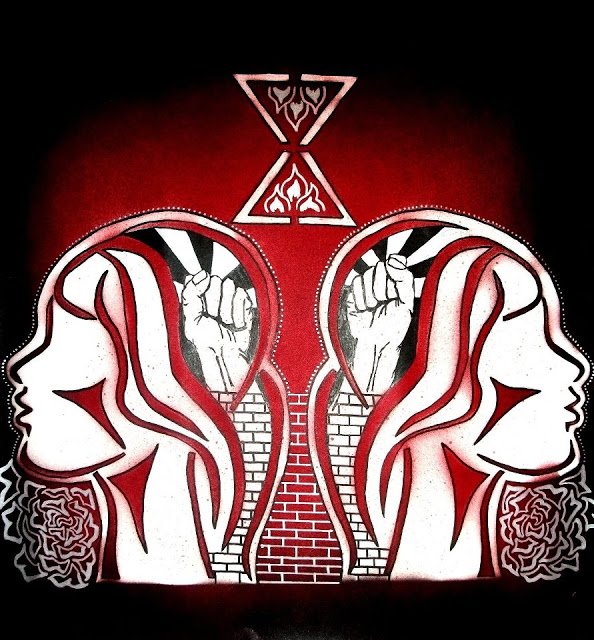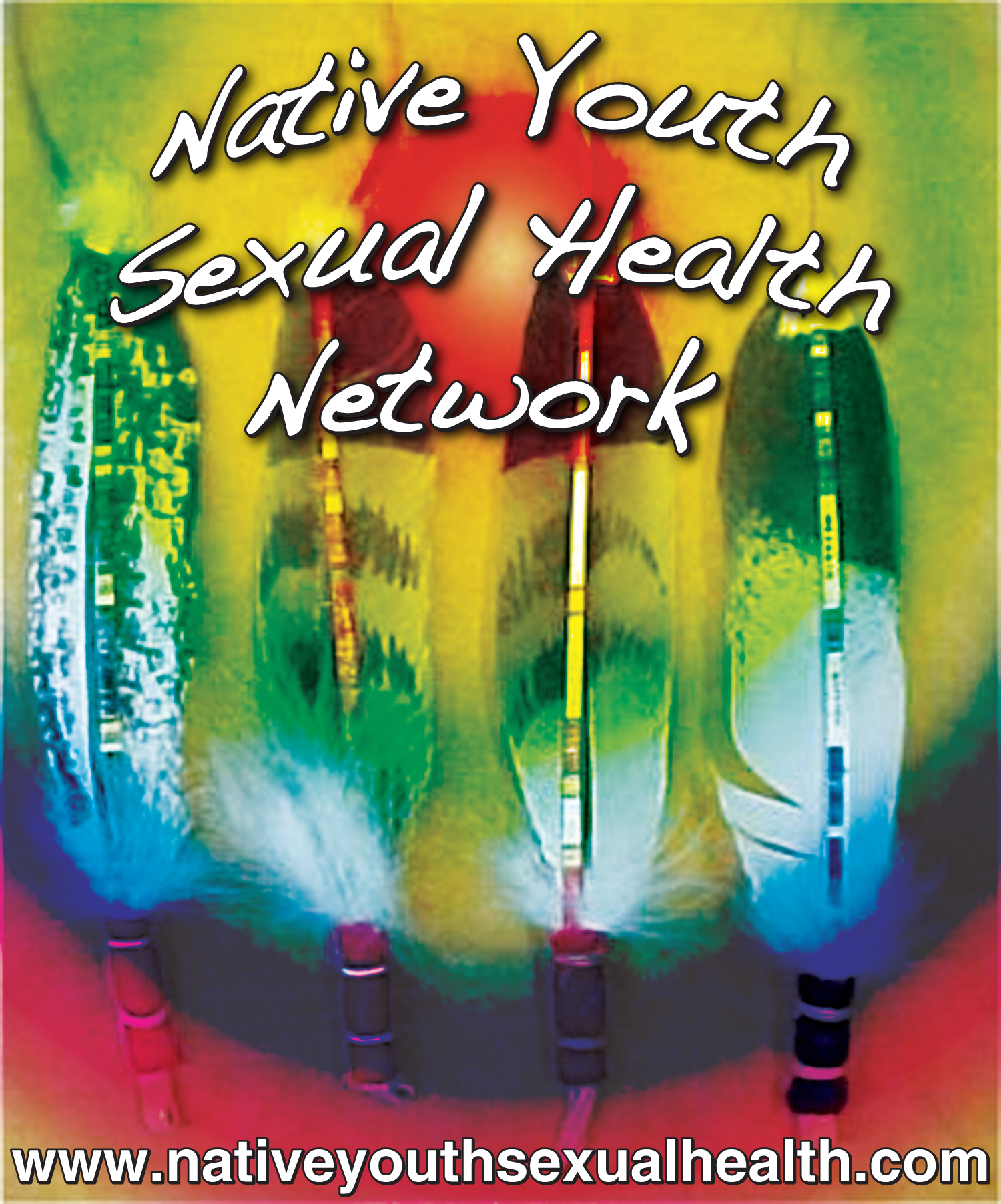This year at the Native Youth Sexual Health Network (NYSHN), we continue to participate in February 14 Women’s Memorial March events to remember and honor missing and murdered Indigenous women, girls, Two-Spirit and Lesbian, Gay, Bisexual, Transgender, Transsexual, Queer, Questioning, Intersex, Asexual (LGBTTQQIA), gender non-conforming people and their families. At NYSHN we march, gather and ceremony together in spirit with one and other; remembering and honoring ancestors and generations to come. Despite the stereotype from mainstream media outlets of Indigenous women and communities being “victims only”; Women’s Memorial Marches are a concrete example of what we have been doing and continue to do about stopping and preventing violence. Coming together in this way is symbolic of us not standing for the loss of family and friends without action and responding together across our different nations.
Legacy
Acknowledging, honoring and learning from those who have come before us continues to center the ways that we move forward at NYSHN. Love, legacy and action have been a part of rising up across Turtle Island for over 23 years. As Indigenous youth, we walk beside older generations of women who have been organizing to dismantle these state and colonial structures that result in the extreme amounts of violence that Indigenous women, girls, Two-Spirit, LGBTTQQIA and gender non-conforming people face – understanding that this violence is part of the very foundation of how Canada and the United States were created.
“Marching” isn’t just about the signs we hold or how far we walk, it’s about the fact that women and families have been doing this organizing themselves for decades; especially when police, governments and other institutions weren’t looking, acting, or believing when women continued to go missing and be murdered. “Marching” is about the numerous meetings, teach-ins, and events that happen at kitchen tables, in back alleys, and wherever our community members are leading up to February 14th itself. It’s this legacy of the necessity to do something outside of state and colonial structures to keep each other safe because of the continued harm families and community members face on a daily basis from these structures, not because of some academic or activist theory. THIS IS REAL.

What We’re Doing this Year
In addition to the actions and initiatives many of the youth leaders in our network are organizing across North America, we’ve partnered again with Families of Sisters in Spirit in Ottawa to do a community teach-in pushing back on what is being called the ‘Savior Industrial Complex’, also using the hashtag #SaviorIsColonization. What we experience in our front-line work is a desire to “save” youth from so-called “risky behaviors” and decisions they make over their bodies, instead of making space for them to lead solutions to their own experiences of violence – in particular when we over-focus on “individual behaviors” instead of the behaviors of systems. In Toronto, we will come together in ceremony and feasting with No More Silence, Maggie’s: The Toronto Sex Workers Action Project, Sistering and other Indigenous organizations and community members. In Edmonton we will march together to honor and remember and gather to share over a meal. Our brothers are also marching with us to remember the men and boys who have gone missing or been murdered.
These events bring us together, but they are just one part of the larger actions that we take every single day of the year. Understanding that state-only or non-Indigenous driven responses to violence (including campaigns like One Billion Rising) that don’t also challenge colonialism, racism, homophobia, transphobia, cissexism, and environmental violence will not work. They actually create more violence by invisibilizing our voices and realities. What is just about the invisibilization of Indigenous women’s resistance?
Not Forgetting is About Action
February 14 is about remembrance, honouring and not forgetting. Not forgetting that this not only comes from generations of violence against women, but from generations of what we’ve been doing about it, and most importantly as a call to action throughout the year to address racism, homophobia, transphobia, cissexism, and systemic violence against Indigenous peoples and our communities. We can also work more to create our own locally based community spaces and resources to gender based violence that don’t rely on things like “reporting” alone, but are based in what survivors are saying they actually need, such as healing justice supports.
We’ve been resisting colonial violence and reclaiming solutions through our actions of #SaviorIsColonization, #SupportNotStigma, #IndigenousFeminisms and our ongoing front-line work by and for Indigenous youth, including where hashtags, Twitter and blog posts alone are not enough. We cannot forget to be in person and show up. Through action, we restore our birthright to feel safe, be supported, and live free from gender-based violence.
The Native Youth Sexual Health Network (NYSHN) is an organization by and for Indigenous youth that works across issues of sexual and reproductive health, rights and justice throughout the United States and Canada.
Photo credit Native Youth Sexual Health Network



